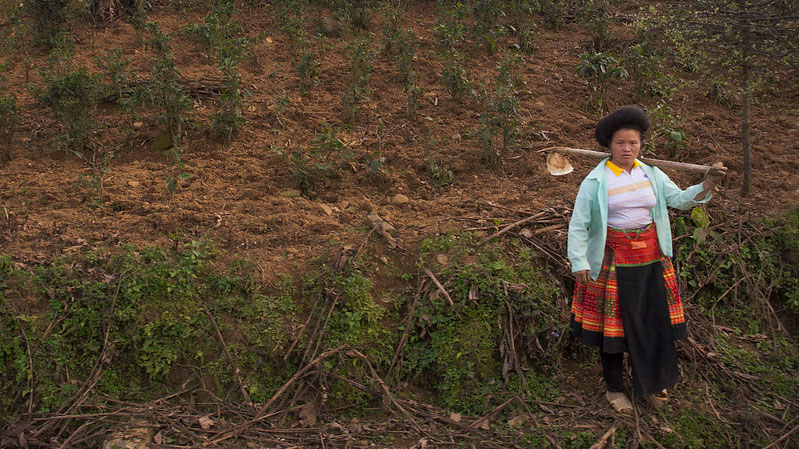
We know enough to reverse the damage to our planet through landscape restoration, circular bioeconomy, nature-based drawdown, bioenergy, green growth, agroecology and more…
The latest climate data reveal that we are falling short of meeting the goals of the Paris Agreement, with the UN Framework Convention on Climate Change (UNFCCC) estimating that by 2025, emissions will be almost 60 percent higher than in 1990. Countries’ nationally-determined contributions (NDCs) must be fully financed in order to be met, and also need to be more ambitious. To halt global warming, we need to follow a more rigorous course. This must be done swiftly: we need to act now, and we have no time to lose. And, we need to do so in ways that promote harmony between nature and people – that is, through nature-based solutions.
In particular, we work closely with governments at policy and field levels to harmonise development and environmental objectives.
For example, in Viet Nam, using sophisticated computer modelling and sensitive community-liaison skills, we have established economically and environmentally successful, large-scale agroforestry demonstration landscapes with farmers, communities and local governments – the results from which feed into national dialogues on forestry and rural development.

In Indonesia, we have helped establish the International Tropical Peatlands Center, focusing on remarkable carbon sinks throughout Southeast Asia, the Congo Basin and Peru, in conjunction with national governments. We see peatlands not as a problematic ‘basket case’, but as a site for ‘super-nature-based solutions’. Carbon-rich peatlands matter for these countries – and their efforts to curb climate change. While well-aware of the challenges and opportunities described by policy makers, CIFOR-ICRAF scientists are eager to deliver demand-driven knowledge associated with mitigating emissions from tropical peatlands.
To make all this and more happen faster, the world needs to expand the scale of adoption of these and other nature-based solutions. Our research-in-development projects and policy-related activities integrate climate considerations into national plans to achieve NDCs. For example, we demonstrate that degraded land can be restored at large scale by applying techniques and approaches such as agroforestry, community forestry management and agroecology to ensure the achievement of NDC targets and other national and international commitments. Not only have we restored degraded land in the areas in which we have been invited to work, but farmers and forest communities therein have also markedly improved their livelihoods, diets and wellbeing.

Our work is diverse and multifaceted, reflecting the nature of the landscapes in which we work. For example, we have not only developed and deployed innovative 21st century technologies — smartphone apps, satellite imagery, sophisticated computer modelling of integrated systems, and infra-red soil analyses — but also reacquainted farmers with age-old techniques to help create ‘green’ jobs and growth through sustainable development of agricultural and forest land.
The evidence and experience that CIFOR-ICRAF offers, as well as the technologies, approaches and methodologies .
We communicate our knowledge through numerous state-of-the-art channels, including the Global Landscapes Forum, user-friendly websites, topical social media, online training and more.
These series of small steps go a long way toward achieving countries’ NDCs. Not only have landscapes become more resilient and more productive for humans, but they also protect and support more biodiversity. As such, they are safer and more beneficial for the other forms of life that directly and indirectly support our existence on this planet.
As we and our partners have considerable experience putting these solutions into action in numerous local contexts, we’re happy to help others transfer these to other parts of the planet, always considering the local context. Participatory science and development; green-growth policies; bioeconomies; bioenergy; renewable construction; blended ‘green’ finance; agroforestry; agroecology; climate-smart agriculture; community-based forest management; transformational partnerships; engagement landscapes: these are just a few of the solutions that CIFOR-ICRAF can offer.
Here, we will make some of our key climate research readily available to you, and share practical examples of work in which nature-based solutions have been successfully implemented to address the climate challenge and achieve wider ecosystem benefits – both for nature and for people.




